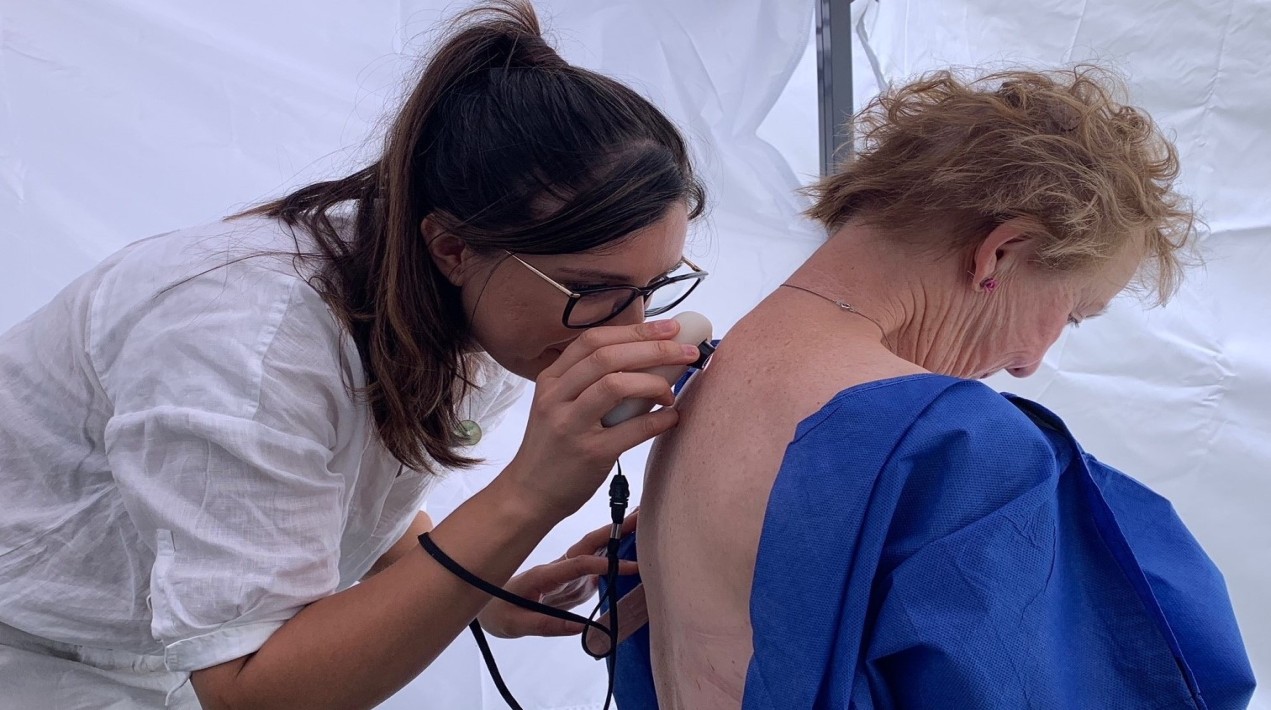
A pop-up clinic utilising AI technology for identifying potential skin cancer has been established at the Tour Down Under event in Victor Harbor, marking it as the first of its kind in the world. The free service, delivered by nurses, uses algorithms in conjunction with doctors’ clinical expertise to detect skin cancer, which affects two out of every three Australians during their lifetime.
A collaboration between a national health charity, the University of South Australia, and The Hospital Research Foundation led to the creation of a new nurse-led model for skin cancer detection. Using AI technology, this model is being tested through pop-up clinics in regional South Australia, where skin cancer rates are significantly higher than in urban areas. This initiative aims to improve the rate of skin checks and early detection in these areas.
UniSA’s Professor in Cancer Nursing, Marion Eckert, says distance is a big disadvantage when it comes to skin screening services. She noted that skin cancer prevention efforts are lacking in funding and resources, particularly in rural areas, despite melanoma being a prevalent and deadly form of cancer in Australia, with four deaths daily. The situation is particularly dire outside of major cities.
Meanwhile, the CEO of the national health charity stated that the AI technology used in this clinic has been found to be on par with dermatologists, and in some cases, even outperforming them. However, further research and controlled trials are needed to fully confirm the efficacy of the algorithms.
He said that the charity’s goal is to halve the number of Australians who die from melanoma and increase the number of skin checks in Australia by 25% by running a targeted AI-supported national skin check program.
The project trains nurses to capture high-quality images of skin lesions, which are then assessed by AI algorithms for signs of cancer. The AI-generated diagnoses are reviewed by local GPs, and patients are referred to dermatologists for further evaluation if necessary. This approach allows for early diagnosis and treatment, especially in areas where access to dermatologists is limited.
Residents living in regional areas will be able to access the service via nurse-led free pop-up clinics at local community events such as the Tour Down Under.
The Australian Institute of Health and Welfare states that skin cancer results in a yearly cost of AU$ 400 million to the healthcare system. Additionally, 2 out of 3 Australians are likely to develop some form of skin cancer, with over 15,000 individuals (one every 30 minutes) being diagnosed with melanoma, the most dangerous type of skin cancer. Over 98 per cent of skin cancers can be successfully treated if they’re found early, which is why getting checked is so important.
The inaugural AI-powered skin cancer clinic was stationed at Warland Reserve from 19-21 January in collaboration with the Tour Down Under and Victor Harbor Art Show.
The global market for AI in cancer diagnostics was valued at US$93.2 million in 2021, and it is expected to experience a compound annual growth rate (CAGR) of 28% between 2022 and 2030.
The use of Artificial Intelligence (AI) in cancer diagnostics is expected to drive market growth as it enables early detection of cancer. According to the World Health Organization, cancer was responsible for 10 million deaths in 2020. Many of these deaths could have been prevented with early diagnosis.
The ability of AI to assist in the screening and diagnosis of cancer is expected to increase early detection rates and this is expected to drive the growth of the AI in the cancer diagnostics market.
















